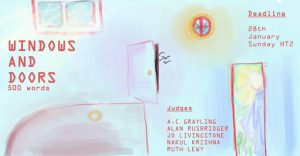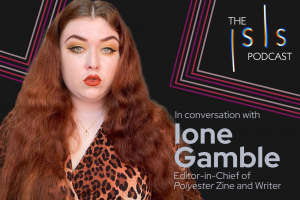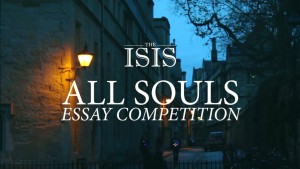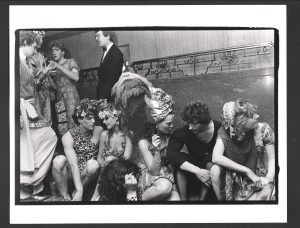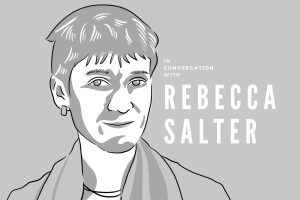In conversation with: Darius Sanai
by Bella Gerber-Johnstone | January 5, 2025
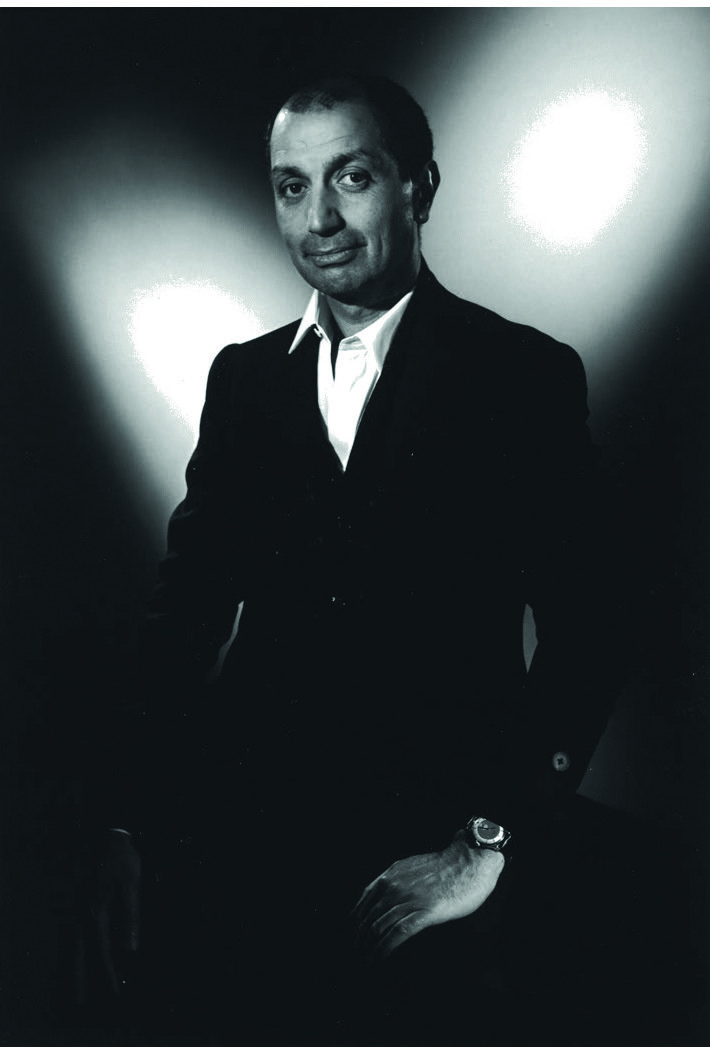
Darius Sanai has gone from one extreme to another: having spent his early twenties working as a correspondent in South Africa, where he “didn’t mind nearly dying, because it kind of went with the job”, he’s now Editor in Chief of LUX magazine, which he describes as “for the 0.01%”. Amongst other accolades, he’s Consultant Editor in Chief of Condé Nast, which publishes titles like Vogue, GQ, and Tatler, but he’s best known in Oxford for his ownership and generosity towards the Oxford Review of Books (the ORB).
Going up the lift to his office (a fancy-looking marble building under construction just off Cavendish Square in London’s West End); I’m met briefly by a LUX graduate staffer, who (unsurprisingly) is an Oxford graduate who spent time at the ORB. She shows me into his airy office space, which is dominated by a ferociously large rosewood table covered in well-curated piles of Vogue (Sanai launched Vogue Hong Kong) and LUX. The LUX strapline— ‘Responsible Culture’—glares ablaze in yellow lettering on the front covers. At the head of the table sits a large silver Apple Desktop.
The shelves are lined with extremely expensive bottles of wine from past work events (I can’t pretend to know much about wine, but I can assure you, they look like the kind of wines where the cork alone is worth twenty pounds). In the corner of the room lies a large brown suitcase, perched on a sofa. It looks like an original 70s Globetrotter, with travel labels hanging off it.
“My father passed away when I was 17, and my mother passed away recently”, Darius tells me. “Clearing out the house, I found that suitcase, and that’s the suitcase that we came to Britain with”. His family (mother, father, and two sisters) moved from Tehran to London when he was just two years old.
In 1999, he wrote a piece in The Independent entitled ‘My Father, the Revolutionary’, which Darius declares was a classic piece of “media sensationalism”, since he never approved the headline. His father “wasn’t ‘the Revolutionary’,” Darius says, “he was a diplomat. He was based there. He was intellectually opposed to the Shah and also intellectually opposed to the revolution. But he wasn’t in the streets fighting.”
I’m curious about Darius’s Iranian identity. Farsi was the first language he learned but his family spoke English after they moved to the UK. He reveals: “I don’t really speak Farsi very well. I could order food in a restaurant, but I can’t read or write it.” Deepening this point, I ask if Tehran feels at all like home to him. “I do still have dreams about arriving back there, but it’s not possible for me to visit currently as a dual national and a media figure. And in the UK I still get that classic ‘Where are you really from?’ question. I feel I am both [nationalities] and neither, somewhere between the generations that wanted to integrate and the ones who want to differentiate”. But, he tells me, “I couldn’t have done what I did in Iran”.
When Darius started his career in the 90s, he felt like he was competing with those who had fierce connections: “when I started out, the media was dominated by British people, with British roots, and British connections … The more people you’ll know, the better you’ll do”. He’s not complaining, he tells me, just stating the facts. “As someone from an immigrant family, you’re starting from scratch, and the media is a very who-do-you-know business”.
When Darius started out at Condé Nast, in a minor role, “I was pretty much the only West Asian editor there”. Up until the noughties, Darius recalls that “anyone West Asian, or Middle Eastern, or from the Indian continent, generally tended to be working on the IT help desk.” At heads of division meetings, Darius felt “the bias was very much towards the British aristocracy”. It’s worth noting that these observations are entirely his own, from 20 years ago, and not those of Condé Nast.
Has anything changed since then? Darius thinks so. “There’s a little bit more diversity in the media now, not enough, but more”. The change is slow, though: “there are invisible barriers—that has changed, and is changing—but it’s good to be mindful of them, because they’re always there, even if you ignore them”.
When Darius was younger, he spent time dotted around Europe, living in Switzerland for a while, then France, but mainly resided at the family home in North London. Educated at a series of private schools (most notably Westminster for secondary school), he fit right in at Oxford to read PPE, where he began to make his mark in student journalism.
In the 90s, “the media in Oxford was even more of a thing”, Darius tells me. “You either joined the Union or you were in the media”. His debut article was “slightly embarrassingly, [on] the mother of one of my friends from school”, who had just published a book, Sex is Not Essential. Sanai tells me it was, to put it mildly, “slightly odd”: a fair analysis considering he had to “speak to [his] friend’s mother about sex not being essential”. He climbed the ranks quickly: starting out as Photo Editor, moving on to be Features Editor, but Darius never ended up as Editor in Chief of Cherwell.
“I don’t want to sound immodest”, he smirks, “but I was obviously going to be the editor”. Why didn’t he get the job, then? Darius squirms in his seat a little—I can tell there’s something he’s debating sharing with me. “On the committee of editors, one of the members was someone who had maybe wanted to be romantically involved, and I didn’t want to be romantically involved.” I ask him what exactly he did to be banned from the role—surely it had to be mildly scandalous or, at the very least, entirely his fault—but he says there’s no more to the tale. She liked him; he rejected her; and he paid the price for the heinous crime of Not Liking Someone Back.
When Cherwell didn’t let him rise the ranks, he started his own paper, Grapevine, in Michaelmas of his final year. He pulls out an old copy for me: the front cover features an interview with New Order (still best known for ‘Blue Monday’). “Everyone wanted to work for us”, he tells me proudly. The magazine was bi-weekly, threw its own events, and had a big team stolen from the others (“I took the best people from The Isis”). They even had Louis Theroux on board (who was a year below Darius, both at Oxford, and indeed at Westminster). Where did the money come from? “I funded some of it myself”, and Dan Viney (good friend and co-publisher) “funded some of it himself as well.”
It was at this time that Darius won runner-up in The Guardian student journalist of the year award—two years in a row. Impressive feat. Grapevine got runner-up for best designed publication, which Darius says “gave us a lot of energy”.
I ask him if Grapevine would have a place in Oxford now. He doesn’t think so. It’s the symptom of a bigger problem: “the advent of writing was the advent of print”, and “they all happened at the same time”. But now, Darius says, “online media is a very big thing. Is print ending and video starting?” Darius worries that the only way to “speak to people who are 14 now is … through social media, short form video”. Where does this leave us? “I think we’re going to stop writing.”
Are words dead then? It’s not impossible, Darius tells me. “I think there’s a definite scenario in 30 years where words just don’t exist.” A scenario where “universities will turn into brands, books will disappear. People just generally won’t know anything, apart from a few privileged academics who have time.”
“I’m not saying that will happen, but I am saying it’s as likely to happen as the comforting scenario that intelligent people will continue to read The New Yorker.”
Where does LUX sit in this world where words might be falling out of style? Darius shows me a recent article on chefs who are leading in sustainability and tells me “if I’d sent a videography team … that would cost me £100,000.” But “there’s not much point in doing it, because influencers do it better. That’s all they do, and they do it cheaper.”
After university, Darius worked as a freelance correspondent in South Africa, reporting on the happenings at the end of Apartheid for The Guardian, The Sunday Times, The Daily Mail, and others. “When I went there, I was catapulted into this world which was very, very divided”, Darius recalls. He was living with friends working in finance, who worked at “nice, glossy offices”, in a house that “felt like Beverly Hills”. From the sounds of it, his early 20s were somewhat of a double life: during the day, he’d visit somewhere where “something horrendous had happened”, in “towns which weren’t even on the map”, and at night he would party with his friends and their shiny lives in their early 20s.
This clear cut division between the day time reportage and night time luxury lifestyle intrigues me. I ask him if he ever feels uncomfortable that LUX is so elitist, especially in such stark contrast to how he started his career, reporting on the ground conflicts. “It doesn’t bother me”, Darius shares. “I can see it’s a great contrast.” I ask him how he feels knowing his magazine is for the 1%. He doesn’t bat an eyelid: “it’s probably the 0.01% that we’re targeted at”. But, he tells me, “I wanted to try and report on something that seemed to matter in the world, and what luxury jeweller has put in its latest collection doesn’t matter”. That’s why “we try and steer clear of superficial stuff in LUX”. Darius later asks me to add some context to what he meant by this: he wants to focus on areas such as “philanthropy, art and sustainability”, where he says the wealthy “can make a disproportionate difference”.
Speaking of money, I probe Darius on the ORB making a loss. It’s no secret that The Isis and the ORB are friendly rivals. We’re both arts and culture papers, attracting a similar demographic; the writers and editors crossover is somewhat incestuous. But The Isis is entirely self-funded, working alongside Oxford Student Publications Limited to pay rent for its own office and to self-fund printing almost 2,000 magazines per issue. Meanwhile, Darius wrote in a LinkedIn post in April 2024 that “the ORB still loses me money” and that he subsidises it himself.
I’ll be the first to admit this is a fault-finding comparison between The Isis and the ORB. Darius pushes back and points out that “the ORB is distributed nationwide on news stand alongside publications like The Atlantic and The London Review of Books. That requires investment and so it isn’t a like-for-like comparison”. “And the ORB doesn’t have the benefit of being a 140 year old brand… yet!”
Darius tells me his intention with ORB was never for profit—“I wanted to support this very good, long form writing part in student media”. Why? “It was an opportunity to do so, and I am happy to continue doing that.” He also points out that in the second half of 2024, “the ORB made a small operating profit for the first time, thanks to some very good teams, and I hope it continues to do so”, although the ORB has indeed lost him money over the years.
When further probed on the numbers, Darius shuts this down quickly: “I can’t talk about that in any detail as this is going to appear in The Isis. There was never a commercial intent… the support was more philanthropic than anything else.” Understood.
My eyes go back to scanning his office set up: amongst framed LUX covers (Jeff Koons, William Kentridge), there’s a photo of The Clash playing live in the 80s leaning against the back wall. Either it’s been taken down or it’s not good enough to deserve a spot on his canvas—either way, he tells me he took the photo himself when he was at school (“It was their last gig. I missed the school play for it”.) His love for The Clash catches me by surprise. Maybe it’s his passion for indulgence and prosperity that feels at a disconnect with Paul Simonon’s loose basslines and The Clash’s leftist lyricism.
I must confess this interview has a slightly meta element to it: I came across Darius by attending his ‘Interview Masterclass’ just over two months ago. A good interview, Darius had told a room of us, will end with the interviewee emailing you afterwards, asking you to redact what they’d said.
As I’m leaving his office, I ask Darius for one final bit of wisdom. He thinks for a moment, then smiles a little: “be persistent and enjoy it”.
Good advice. I’ll keep my eyes on my inbox just in case.∎
Words by Bella Gerber-Johnstone. Image courtesy of Darius Sanai.
